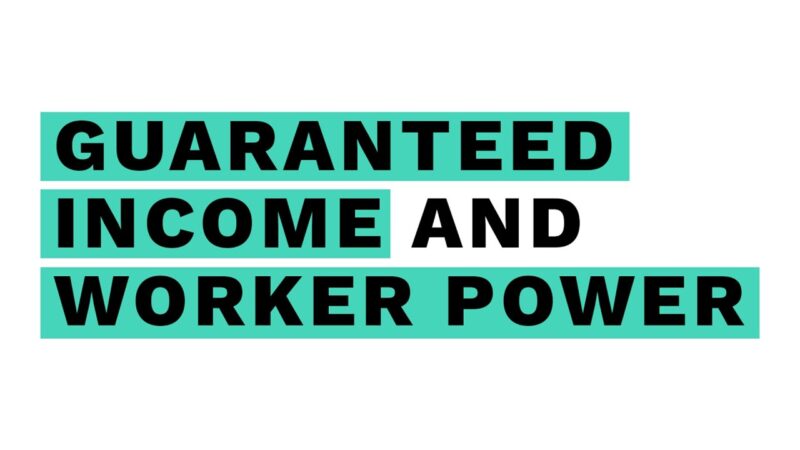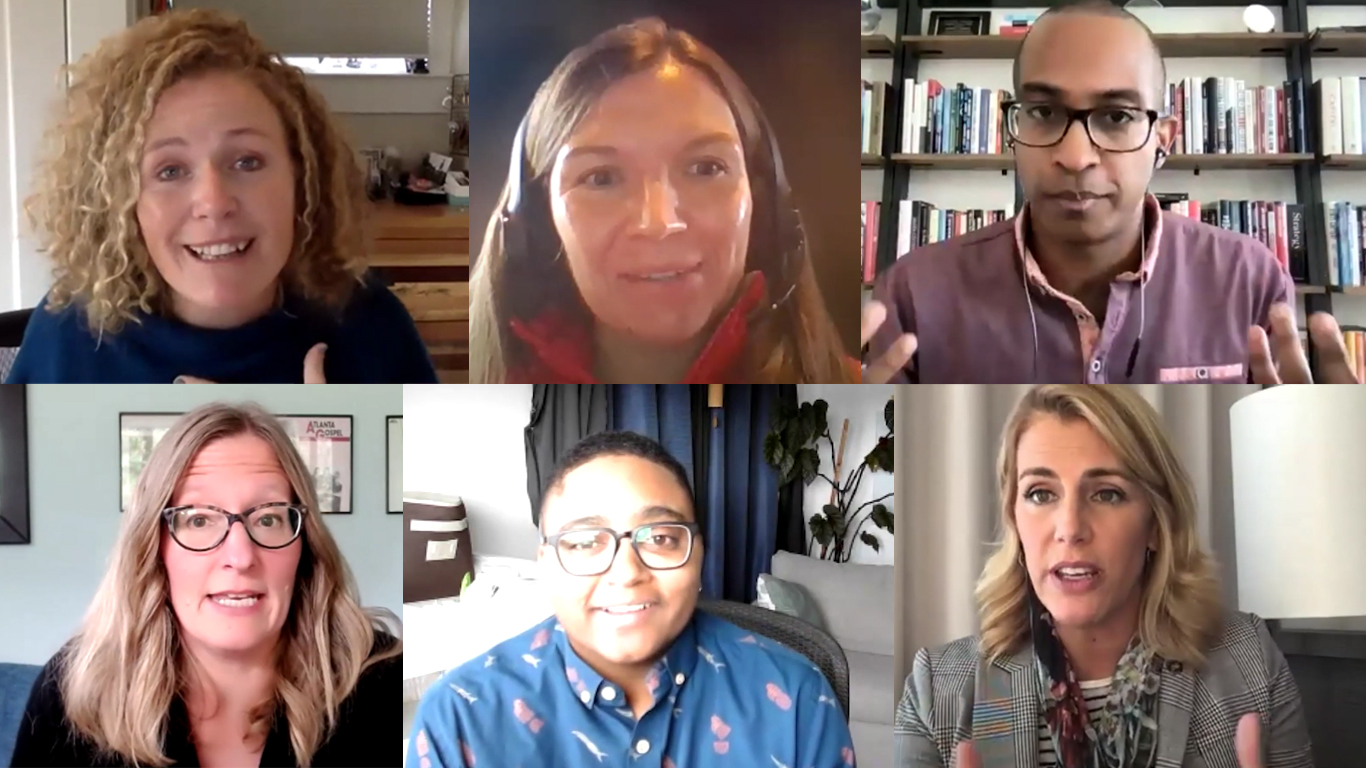Event
Guaranteed Income and Worker Power Roundtable
10. 26. 2021
This event offered a forum for leaders to reflect on how recent examples of increased worker power were supported by direct federal cash payments.

The Guaranteed Income and Worker Power roundtable was jointly hosted by Economic Security Project, Jobs for Justice, Community Change, and the Association of Flight Attendants-CWA. This event offered a forum for leaders from across the country to share, discuss, and reflect on how recent examples of increased worker power — including The Great Resignation, #Striketober, and more — were supported by direct federal cash payments provided as COVID relief. Grounded in this moment, these conversations were concerned with a broader question: how can a guaranteed income support labor organizing and help workers leverage their power? Below are some toplines from the public portion of the conversation, as well as links to the recordings.
Chirag Mehta of Community Change launched the meeting by situating us in the current moment of a global pandemic during which the U.S. provided sufficient cash relief so that poverty was reduced. And, at the same time, we’re seeing expressions of worker power with workers demanding higher wages and better working conditions. This potential relationship between guaranteed income and worker power holds a lot of implications for the guaranteed income movement and the labor movement, and our organizations have coordinated together to explore the potential relationships through a series of convenings, discussions, and roundtables.
Natalie Foster of the Economic Security Project shared the vision of the Economic Security Project to build economic power for all Americans. She explained that guaranteed income — providing an income floor through which no one can fall — is grounded in a history of racial, gender, and economic justice in the U.S. By being responsive to current inequalities — not replacing social safety nets — and trusting individuals to know what is best, a guaranteed income provides economic stability and acknowledges the inherent dignity of its recipients. Guaranteed income pilot programs such as the Stockton Economic Empowerment Demonstration of Stockton, CA and the Magnolia Mother’s Trust of Jackson, MS have provided solid evidence that consistent cash payments alleviate financial insecurity and improve quality of life. Notably, guaranteed income challenges long-held beliefs about deservedness and gendered and racist tropes by providing economic security without wage-earning requirements which stem from anti-Blackness.
Erica Smiley, Executive Director of Jobs with Justice was introduced by Foster following the highlighting of racial disparities in economic stability. Jobs with Justice is a union rights organization focused on establishing a multi-racial democracy and an equitable worker-centered economy. Smiley provided historical context for the recent examples of worker power, framing the current moment as a continuation of the ongoing battle for workers’ rights, democracy, and racial justice dating back more than 150 years. Smiley explained that the post-Civil War Reconstruction project to build a multiracial democracy in this country is largely incomplete, and has been continually interrupted by actors claiming control for a select few while continuing to exclude Black, Brown, Indigenous, and immigrant communities. Democracy must be applied to participation and decision-making in all aspects of life, rather than a narrow set of political practices; by that measure, Smiley asserted, the United States has far to go. Smiley shared that Jobs with Justice will continue to pursue democracy in all forms of public life, and desires to think about guaranteed income through the lens of building a stronger, healthier democracy.
Sara Nelson of the Association of Flight Attendants-CWA illustrated the promise of unions to improve workers’ lives by highlighting the victories of aviation workers during the pandemic. Entering the pandemic, unionized aviation workers were able to negotiate terms that allowed them to keep their healthcare, paid leave, and jobs through incredible disruption. Past crises, including 9/11 and the revocation of pensions, taught these workers to safeguard their benefits from corporate control. Nelson observed that a strengthened safety net has emboldened workers to see their individual financial insecurity as a larger systemic issue rather than as a personal failure. This shift in perspective has raised workers’ expectations for employers and increased interest in unionization across sectors. Increased unionization, she noted, is vital to an inclusive economy and a more powerful democracy.
Dorian Warren of Community Change and Heidi Shierholz of the Economic Policy Institute
engaged in a keynote conversation about the relationship between worker power and a robust safety net. Dorian set the stage by recognizing that a strong labor movement will encourage a robust safety net that allows all families to thrive, before asking Shierholz about current data on workers’ bargaining power. Shierholz shared that many sectors of the economy are witnessing clear signs of increased worker power, especially those that were hardest hit by the pandemic and have the lowest wages, including restaurant and hospitality work. People are quitting their jobs for better, more accommodating work, and hires are consistently outpacing quits. She reminded participants that increasing strike activity predates the pandemic; recalling teachers’ walk-outs in 2018 and 2019 that garnered attention. Shierholz noted that the most comprehensive data available on strike activity is still deeply inadequate, reflecting a need for better and more responsive data sources.
Warren then turned attention to policies to increase worker power, focusing especially on the recent reconciliation bill. Shierholz shared that the American Recovery Plan stimulates the economy by giving more money back to households, small businesses, and local governments, which promises to increase demand for goods and services and therefore for workers, critical to building worker power. In addition, she asserted that universal income boosts worker power by allowing laborers to be selective in what employment they accept.
